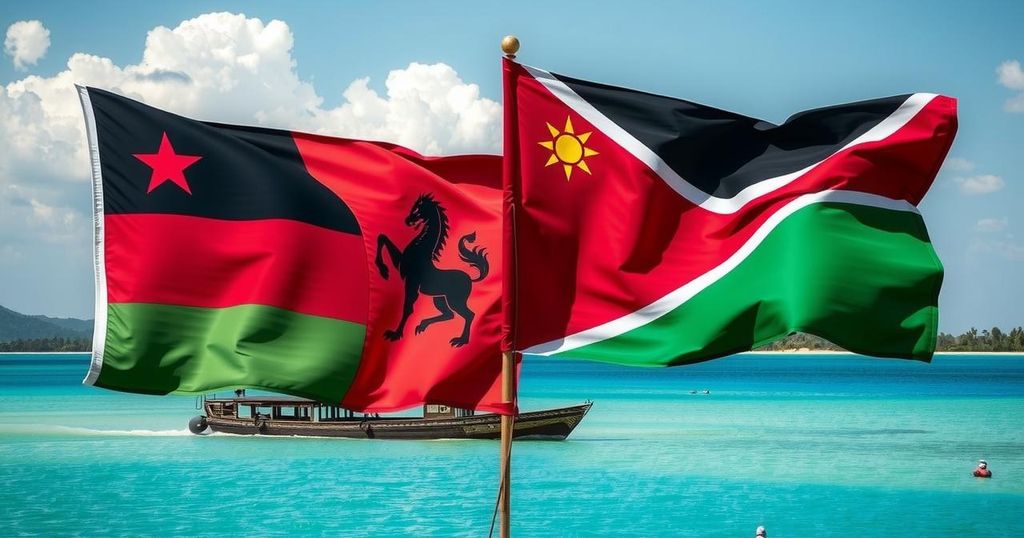Sovereignty Dispute Over Lake Malawi: Malawi and Tanzania at Odds
Malawi and Tanzania are involved in a longstanding sovereignty dispute over Lake Malawi, stemming from differing interpretations of historical treaties. Malawi claims ownership based on the 1890 Anglo-German Treaty, while Tanzania supports median line delimitation as per modern international norms. The dispute has significant implications for regional resources and livelihoods, with no resolution reached despite ongoing diplomatic efforts.
The dispute over Lake Malawi, also referred to as Lake Nyasa in Tanzania, remains a significant point of contention between Malawi and Tanzania. The core of the disagreement lies in competing interpretations of historical treaties and international laws regarding the ownership of the lake. Malawi claims full sovereignty over the lake up to the Tanzanian shoreline, citing the Anglo-German Treaty of 1890, which delineates the boundary at the eastern shoreline. It asserts that this treaty, known as the Heligoland-Zanzibar Treaty, designates the lake as entirely part of the former British protectorate of Nyasaland, today’s Malawi. Malawi further reinforces its claim by referencing agreements with Portuguese colonial authorities that allegedly transferred sovereignty over certain islands to Nyasaland in exchange for lake control.
Conversely, Tanzania disputes Malawi’s assertion, advocating for the application of the median line principle, which suggests that shared water bodies should have boundaries drawn along their center. Tanzania argues that the center of Lake Malawi should serve as the boundary, mirroring the established southern boundary between Malawi and Mozambique. This perspective aligns with contemporary international practices for delimiting shared resources and is deemed a fairer approach.
The implications of this dispute extend beyond mere territorial claims, as Lake Malawi is vital for water, food, and livelihoods for millions in both countries, while also potentially housing significant oil and gas resources. Thus, the stakes are high for both nations as they vie for control of the lake and its economic opportunities.
Diplomatic discussions aimed at resolving the conflict have been initiated over the years, including interventions by the African Union. However, no satisfactory agreement has been reached to date. Malawi maintains its reliance on the historical validity of the 1890 treaty, while Tanzania advocates for a modern interpretation of international boundary law, emphasizing fairness and equity.
This ongoing conflict underscores the difficulties encountered when historical treaties conflict with current international norms. The situation surrounding Lake Malawi continues to be emblematic of broader issues related to sovereignty, resource management, and the necessity for regional cooperation in resolving disputes.
The longstanding dispute over Lake Malawi involves Malawi and Tanzania, focusing on the interpretation of historical treaties concerning the lake’s sovereignty. Rooted in colonial agreements, the disagreement highlights the challenges of aligning historical frameworks with modern international law. This issue is significant not only for territorial claims but also due to the economic resources that the lake represents for both nations.
In conclusion, the conflict over Lake Malawi exemplifies the complexities of international boundary disputes, particularly when historical treaties are at odds with contemporary legal norms. The potential economic resources in the lake further intensify the stakes, necessitating diplomatic efforts towards a peaceful resolution that respects both historical claims and modern practices.
Original Source: malawi24.com




Post Comment